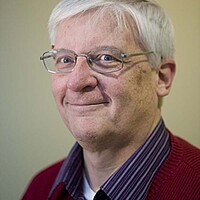Good Reads: From snow days, to a bright tech future, to ride shares, to binge TV
Loading...
Tired of winter? Imagine being a school superintendent, in charge of closing (or keeping open) 22 schools. The decision of when to hold school and when to close down for bad weather means juggling a lot of variables. So says Joseph Roy, superintendent of Bethlehem Area School District in Pennsylvania, in an interview with his Time-reporter daughter Jessica Roy.
A snow-day decision can be a Catch-22, he explains. “Let’s say we have school and the weather gets horrible and then you’re sending buses home and kids are walking home in dangerous conditions – that’s not good,” he says. “On the other hand, if you make decisions to close or even have a 2-hour delay too lightly and too quickly, you really impact families because not everyone has child care.”
When snow is imminent Dr. Roy rises at 3:30 a.m. to cross-check several weather forecasts and consult with other superintendents in his area before making a final call. After deciding, there’s little time to relax before he braces for e-mails and calls from parents second-guessing his decision.
A ‘Downton Abbey’ US economy
America runs the risk of becoming a “ ‘Downton Abbey’ economy,” one in which a tiny privileged class thrives while being served by workers struggling to make ends meet. That’s the conclusion of Lawrence Summers, a past president of Harvard University, secretary of the Treasury under President Clinton, and former director of the National Economic Council for President Obama, in an essay on his website, www.larrysummers.com.
But there are solutions. “It is not enough to identify policies that reduce inequality. To be effective they must also raise the incomes of the middle class and the poor,” he writes.
“Tax reform has a major role to play,” he says. Current codes allow “the rich to shield a far greater proportion of their income from taxation than the poor.” Last year’s stock market boom increased the wealth of shareholders by about $6 trillion, but “the lion’s share went to the very wealthy,” he says. If loopholes that benefit only the wealthy were closed, taxes could be cut elsewhere. “Sooner or later inequality will have to be addressed,” he warns.
Look on the bright side of (tech) life
The future looks quite different to techno-optimists than it does to techno-pessimists. Count Erik Brynjolfsson and Andrew McAfee as head cheerleaders in the optimistic camp. In an essay in The Atlantic they argue that two revolutionary events – the emergence of “real, useful artificial intelligence” and “the connection of most of the people on the planet via a common digital network” (the Internet) – are causing changes not seen since the Industrial Revolution two centuries ago.
Self-driving cars, humanoid robots, and artificial intelligence capable of winning TV’s “Jeopardy!” game show are just “the warm-up acts,” they say. With more of humanity able to access the world’s knowledge via the Web, humans and machines will devise new wonders. “The second machine age will be characterized by countless instances of machine intelligence and billions of interconnected brains working together to better understand and improve our world. It will make mockery out of all that came before.”
A world of car-free passengers
Are ride-sharing services like Uber, Lyft, and Gett a natural evolution for transportation in the Internet Age? Or as they circumvent the rules of a highly regulated taxi and limousine industry, do they compromise safety and gouge customers?
Those who use these services send out a text message that they need a ride. But it’s not clear what kind of a vehicle, or driver, will appear at the curb. Or how much the customer will be charged, which is based on an algorithm that measures demand for rides in that area at that moment.
“No one under the age of 40 with a smartphone is going out and getting a cab anymore,” explains a driver for Uber in an article by Brad Stone in Bloomberg Businessweek. Ride-sharing has already spread to 70 cities worldwide; it took in at least $1 billion in 2013.
Replacing taxis and limos may just be the start. Eventually most people may abandon their personal vehicles knowing they can quickly and easily hail a ride, perhaps even a driverless self-driving car. Traffic congestion could be greatly reduced. “One day we may be in a world where we’re all passengers,” says one industry visionary.
Why 18 hours of TV may be good for you
People usually confess to “binge-watching” a whole season of a TV series like “Homeland,” “Game of Thrones,” or “House of Cards” on DVD or via a streaming service with some embarrassment, as if it suggests overindulgence. But binge-watching may be good for you, a kind of “restorative experience” that recharges your mental batteries, akin to taking a walk in a park, going to the theater, or reading a good book, argues writer Alex Soojung-Kim Pang in the online magazine Slate.
Like other restorative experiences, good binge-watching transports viewers away from their everyday lives. They enter “rich and fully realized worlds,” he writes. The deep experience of bingeing is an antidote to the chaos of work and home life, full of constant interruptions. “It’s a way to reclaim their time and attention in a rushing, distracting world.”








